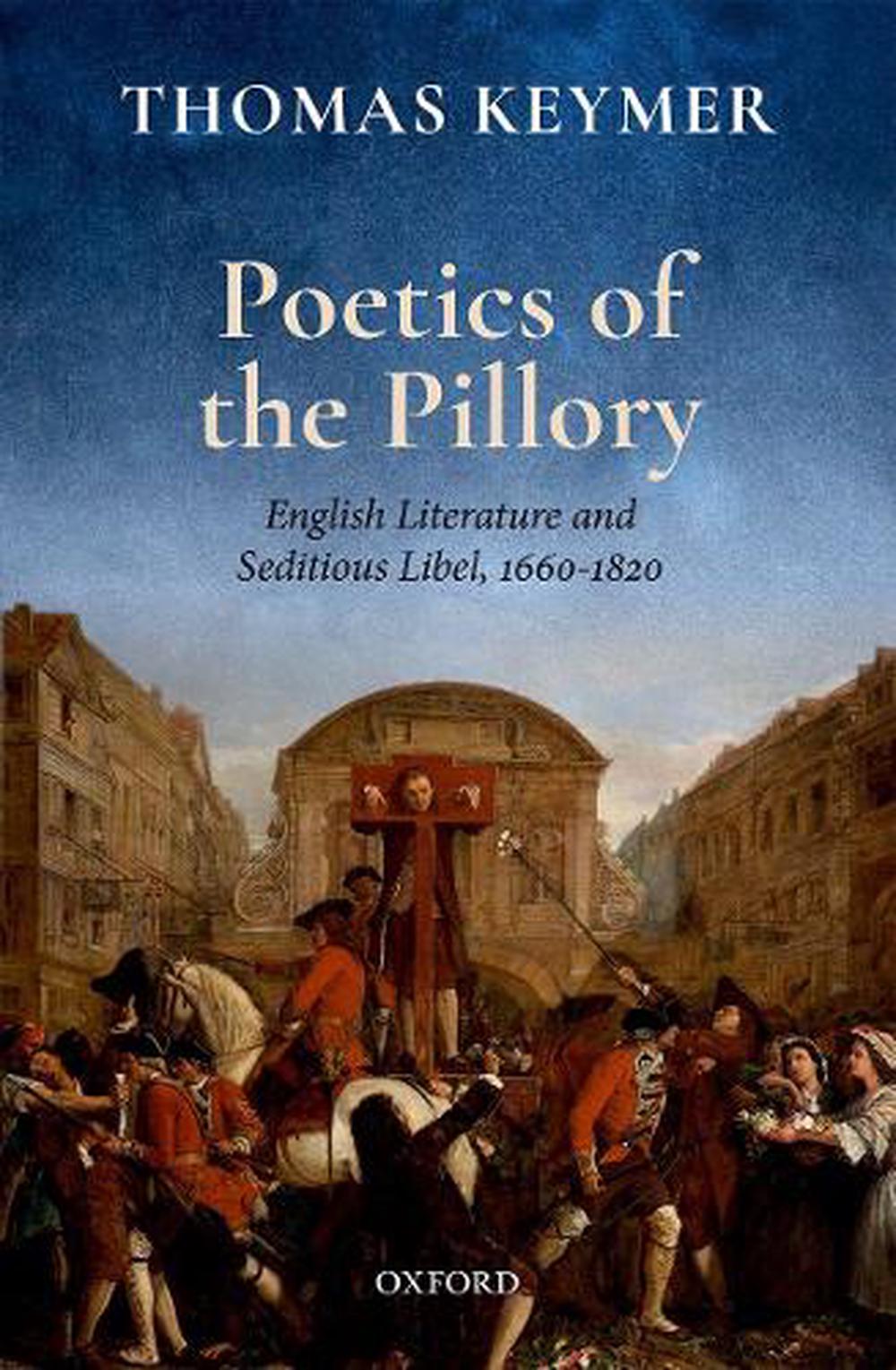
Poetics of the Pillory
english literature and seditious libel, 1660-1820
$166.78
- Hardcover
342 pages
- Release Date
30 October 2019
Summary
The Unseen Censor: Literature and the Shadow of the Pillory
On the lapse of the Licensing Act in 1695, Thomas Macaulay declared English literature “emancipated…from the control of the government.” But was it truly free? This book argues that government control merely shifted, from pre-publication licensing to post-publication retribution, most notably through seditious libel laws.
For authors like Defoe and Cobbett, this new regime was often a greater constraint, marked by u…
Book Details
| ISBN-13: | 9780198744498 |
|---|---|
| ISBN-10: | 0198744498 |
| Series: | Clarendon Lectures in English |
| Author: | Thomas Keymer |
| Publisher: | Oxford University Press |
| Imprint: | Oxford University Press |
| Format: | Hardcover |
| Number of Pages: | 342 |
| Release Date: | 30 October 2019 |
| Weight: | 482g |
| Dimensions: | 200mm x 136mm x 26mm |
You Can Find This Book In
What They're Saying
Critics Review
The study derives a substantial part of its vitality from the way in which it includes, alongside the big names, obscure political pamphlets such as Nero the Second, ‘What Makes a Libel’, and Isaac Dalton’s Shift Shifted. Riveting, also, is its analysis of the pillory in visual culture, starting from Cromwellian woodcuts to Victorian illustrations by William Hogarth and Eyre Crowe … Ultimately Poetics of the Pillory is a crucial study, particularly for our times, as social media platforms resurrect the pillory digitally, while governmental surveillance and censorship reach a crescendo in the developing as well as the developed world. * Doyeeta Majumder, Modern Lanuage Review *For Thomas Keymer in his beautifully detailed history, such strategies of evasion are one of the things that make seditious literary texts worth reading, forms of energetic ‘creativity and rhetorical complexity’ for which, perhaps counterintuitively, we have the early modern political state to thank. * Clare Bucknell, London Review of Books *There is a wealth of learning here. * Los Angeles Review of Books *…a major addition to the well-established critical discussion about the links between literature and censorship. * Paul Keen, Eighteenth-Century Fiction *Armed against any Whiggish optimism, Keymer traces the flexible boundary between literature and law across more than a century and a half with exceptional deftness—a huge amount of material has been digested and arranged here so as to be read with great ease and enjoyment… . A whole series of major authors emerge from Keymer’s study in a fresh perspective—Dryden, Andrew Marvell, Pope, Daniel Defoe, Fielding, Johnson, and most strikingly Robert Southey. This is a book of the first importance. * David Womersley, Studies in English Literature *Thomas Keymer’s excellent new book is a combined history and critical study of the ways in which conditions of censorship shaped English literature during the long eighteenth century (1660-1820). The book began life as the Clarendon Lectures given at the University of Oxford in 2014-15; these have been expanded with rich archival and critical detail, without sacrificing the energy and lucidity of the lectures. * Niall Allsopp, Seventeenth-Century News *
About The Author
Thomas Keymer
Thomas Keymer is Chancellor Henry N. R. Jackman University Professor of English at the University of Toronto. Before moving to Toronto in 2006, he taught for six years at Royal Holloway, University of London, and for ten years at St Anne’s College, Oxford. He is a Fellow of the Royal Society of Canada, the Royal Historical Society, and the English Association, and has also held fellowships with the John Simon Guggenheim Memorial Foundation, the Leverhulme Trust,and All Souls College, Oxford. His work is mainly focused on Restoration, eighteenth-century, and Romantic-era British and Irish literature. Between 2013 and 2017 he directed the University of Toronto’s Graduate Program in Book History & Print Culture, and he currently serves as General Editor of the Review of English Studies and co-General Editor of the Cambridge Edition of the Works & Correspondence of Samuel Richardson.
Returns
This item is eligible for free returns within 30 days of delivery. See our returns policy for further details.




